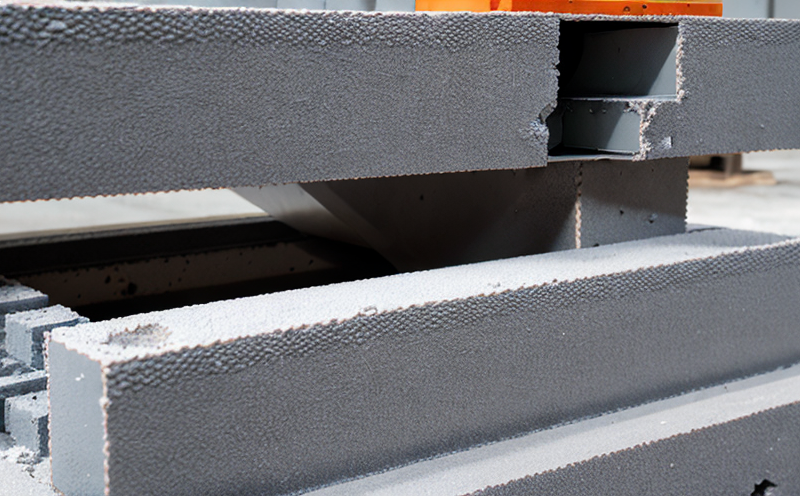Testing of fracture toughness in thick sections
The Crucial Role of Testing Fracture Toughness in Thick Sections Enhancing Material Reliability and Safety
As industries continue to push the boundaries of innovation and efficiency, the importance of material reliability and safety cannot be overstated. One critical factor that plays a significant role in ensuring the integrity of materials is fracture toughness testing in thick sections. This laboratory service offered by Eurolab provides businesses with the assurance they need to make informed decisions about their products performance under various conditions.
Fracture toughness testing in thick sections involves evaluating the materials resistance to crack propagation and subsequent failure under different loading conditions. It is an essential aspect of ensuring that materials can withstand stress, fatigue, and other environmental factors without compromising their structure or safety. In this article, we will delve into the world of fracture toughness testing in thick sections, highlighting its significance, advantages, and key benefits.
What is Fracture Toughness Testing in Thick Sections?
Fracture toughness testing in thick sections refers to a series of laboratory tests designed to measure the materials ability to resist crack propagation. These tests involve subjecting notched or pre-cracked specimens to various loading conditions, such as tension, compression, or bending, and monitoring their behavior until failure occurs.
The primary objective of fracture toughness testing is to determine the critical stress intensity factor (KIC), which represents a materials resistance to cracking under different loading conditions. This parameter is essential for predicting the likelihood of crack growth and subsequent failure in materials subjected to various stresses and strains.
Advantages of Testing Fracture Toughness in Thick Sections
Eurolabs fracture toughness testing services offer numerous benefits to businesses, including
Improved Material Reliability By evaluating a materials resistance to cracking and failure, businesses can ensure that their products meet the required standards for performance and safety.
Enhanced Product Safety Fracture toughness testing helps identify potential weaknesses in materials, enabling manufacturers to take corrective action and prevent accidents or failures.
Compliance with Regulatory Requirements Many industries are subject to strict regulations governing material properties and performance. Eurolabs fracture toughness testing services ensure compliance with these standards.
Key Benefits of Using Eurolabs Fracture Toughness Testing Services
Here are some key benefits of using Eurolabs fracture toughness testing services
Precise Results Our state-of-the-art equipment and experienced technicians provide accurate and reliable results, ensuring that businesses can make informed decisions about their materials.
Comprehensive Reporting We provide detailed reports outlining the test procedures, results, and recommendations for material selection or optimization.
Expert Analysis Our team of experts is available to interpret results, identify potential weaknesses, and suggest strategies for improving material performance.
Timely Delivery We understand the importance of timely delivery, ensuring that businesses receive their test results quickly and efficiently.
Common Applications of Fracture Toughness Testing in Thick Sections
Fracture toughness testing in thick sections has a wide range of applications across various industries, including
Aerospace Engineering Ensuring material reliability for aircraft components, such as wings and fuselage.
Automotive Industry Verifying material properties for vehicle structures, engine components, and other safety-critical parts.
Construction and Building Materials Evaluating the performance of materials used in building construction, such as concrete, steel, and wood products.
QA Frequently Asked Questions about Fracture Toughness Testing
What is fracture toughness?
Fracture toughness refers to a materials resistance to crack propagation under different loading conditions.
Why is fracture toughness testing important?
Fracture toughness testing ensures that materials can withstand stress, fatigue, and other environmental factors without compromising their structure or safety.
How does Eurolab conduct fracture toughness testing in thick sections?
Our experienced technicians use state-of-the-art equipment to subject specimens to various loading conditions, monitoring their behavior until failure occurs.
What are the key parameters measured during fracture toughness testing?
The critical stress intensity factor (KIC) is the primary parameter measured during fracture toughness testing.
Conclusion
Testing fracture toughness in thick sections is a crucial aspect of ensuring material reliability and safety across various industries. By evaluating a materials resistance to cracking and failure, businesses can make informed decisions about their products performance under different conditions. Eurolabs comprehensive services offer precise results, expert analysis, and timely delivery, providing businesses with the assurance they need to thrive in todays competitive market.
Whether youre an aerospace engineer, automotive designer, or construction specialist, Eurolabs fracture toughness testing services are designed to meet your specific needs. Contact us today to learn more about how we can help you ensure material reliability and safety for your products.




